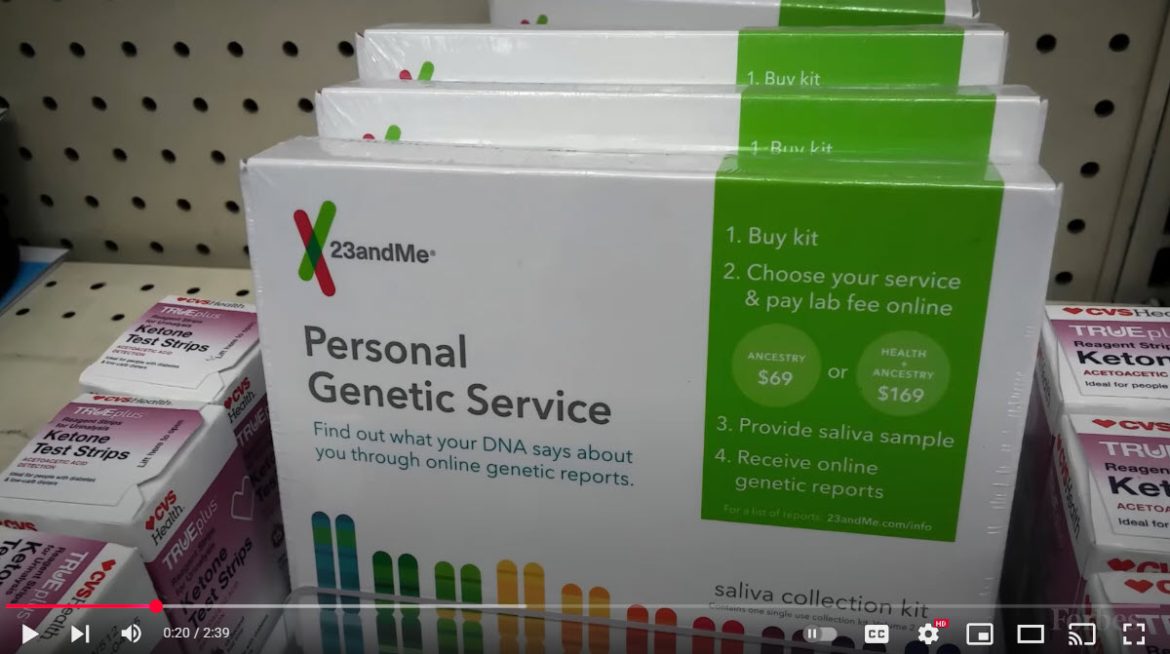A growing storm of privacy concerns surrounds the popular genetic testing company 23andMe as it files for bankruptcy, triggering fears that the DNA data of millions of Americans could be up for sale as the company liquidates its assets. Legal experts, state officials, and consumer advocates are now warning that one of the most intimate forms of personal information — genetic code — may be at risk of falling into the wrong hands.
Known for its widely marketed saliva-based kits that promise customers insights into ancestry, hereditary health risks, and family connections, 23andMe has accumulated a massive DNA database since its founding in 2006. But now, with its financial collapse and plans to sell assets to pay off debts, privacy advocates are questioning what will happen to the deeply personal data stored on the company’s servers.
Harvard Law Professor I. Glenn Cohen, a leading authority on health law and bioethics, is sounding the alarm. “This is not like selling email addresses or shopping preferences — this is a person’s genetic blueprint. Once it’s sold or breached, there’s no putting that genie back in the bottle,” he says.
California Attorney General Rob Bonta is among those taking immediate action. In a statement released this week, Bonta confirms that he has already deleted his own data from the 23andMe platform and encourages others to do the same. “People have a right to control their genetic information,” he says, adding that Californians should not assume their data is safe simply because the company claims it is.
23andMe insists it will continue to protect customer data despite the bankruptcy. In a statement, founder and former CEO Anne Wojcicki says the company’s data protection policies remain unchanged, and that genetic data will not be sold without consent. Still, trust in the company is wavering, especially after a major data breach in 2023 exposed the personal profiles of nearly 7 million users. That incident, which resulted from weak password protections, already put 23andMe on the defensive with regulators and privacy watchdogs.
Now, with bankruptcy proceedings underway, fears are intensifying that the company could be forced to auction off assets — including customer databases — to satisfy creditors. While the company’s terms of service claim that customers own their genetic data, consumer advocates argue that those legal protections may not hold up in bankruptcy court, especially if buyers see value in anonymized (or re-identifiable) genetic datasets for pharmaceutical, insurance, or even law enforcement use.
New York State Attorney General Letitia James is also taking a proactive stance, providing step-by-step instructions for 23andMe customers to permanently delete their accounts and request the destruction of their saliva samples. “New Yorkers’ genetic data is sensitive information that must be protected at all costs,” James says. Her office has published guidelines on how to opt out and delete one’s genetic profile under the “Preferences” section of 23andMe accounts.
The situation highlights the growing tension between consumer technology and privacy, especially in the era of big data. As more people voluntarily submit personal data to DNA services in search of health insights or family trees, the legal infrastructure protecting that information has struggled to keep up.
According to the Electronic Frontier Foundation, U.S. law does not offer strong privacy protections for genetic data once it’s submitted to private companies. “Customers often don’t realize that they’re giving companies a license to use — and potentially share — their most sensitive biological information,” says one EFF spokesperson.
23andMe’s bankruptcy could also mark a turning point in the direct-to-consumer genetic testing industry. Other companies like Ancestry.com and MyHeritage have ramped up their privacy efforts in recent years, but trust in the sector as a whole may be shaken if 23andMe is unable to assure the safe handling and deletion of user data.
Meanwhile, 23andMe users across the country are scrambling to decide whether to delete their data or risk it being sold. Experts recommend downloading your DNA results and requesting deletion through the company’s account settings before any major asset sale occurs.
As the legal and ethical debates rage on, one thing is clear: the stakes have never been higher when it comes to owning and protecting your own DNA.
Source Links:



